#social drama
Text
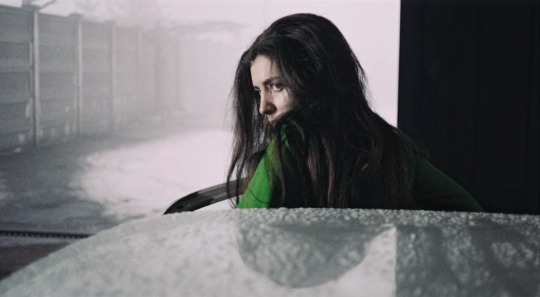

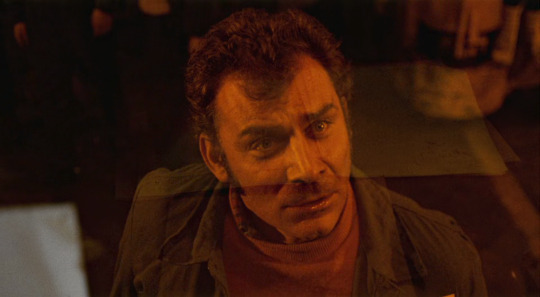

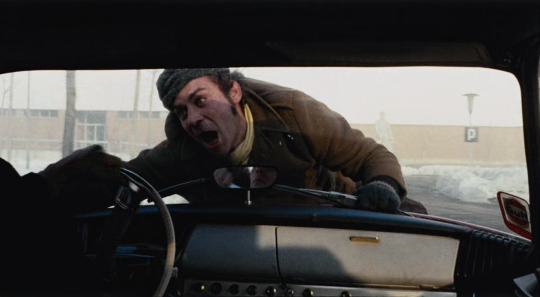
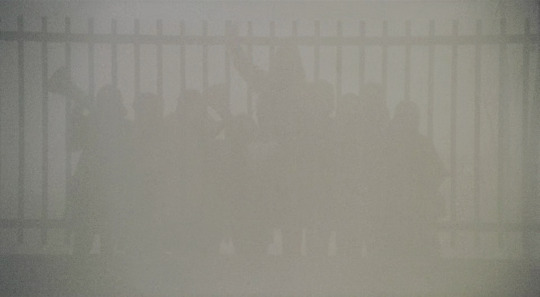
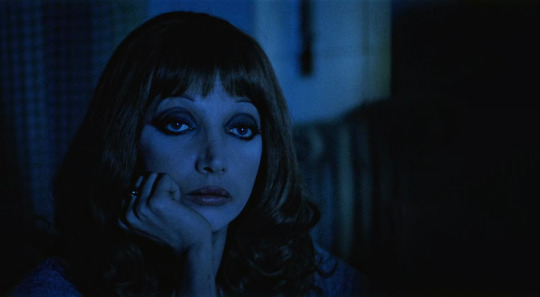
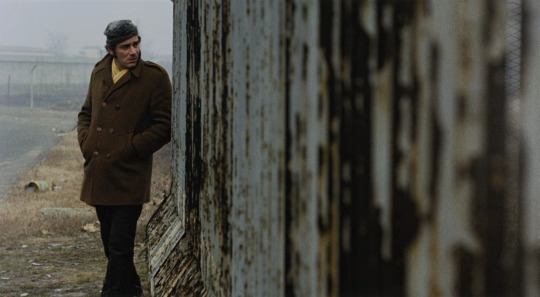
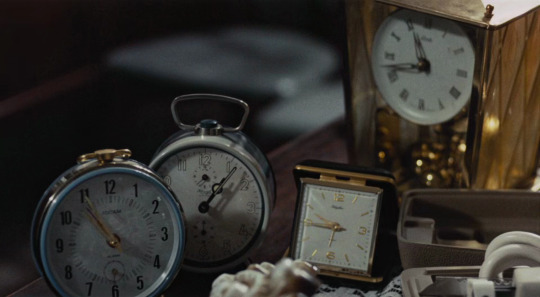
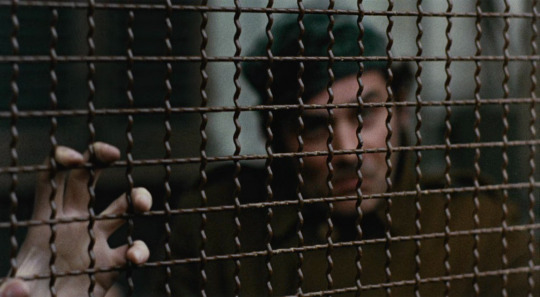
La classe operaia va in paradiso (Elio Petri, 1971)
#films watched in 2023#La classe operaia va in paradiso#Elio Petri#Petri#1971#The working class goes to heaven#Gian Maria Volonté#Gian Maria Volonte#Mariangela Melato#alvo Randone#Carla Mancini#job#siete#poverty#Italy#revolution#politics#drama#social drama#seventies
126 notes
·
View notes
Text
The webcomic Questionable Content dropped its 5000th comic on Friday, and throughout the weekend and today I binge-reread all of the most recent thousand. I've never had the impression that many of my followers care about QC (not ~8 years ago when I started to blog about it, nor today), but I do have a tradition, after each thousand of its comics, of writing a post reviewing that thousand. Here is where I blogged after the 1000th comic, reblogged after the 2000th comic, and reblogged again after the 3000th comic (this was all during my early months on Tumblr when I was more into reblogging my own posts), and here is my post from 2019 from after the 4000th came out.
When I look back on the pivotal moment clearly scheduled for QC's 500th comic, when it seemed that QC had already been going on quite a while and developed into a really involved storyline that had built and built to this moment when Faye would finally reveal her traumatic backstory, it's astounding to take in the fact that QC has now reached ten times that milestone.
I'm not sure I have a ton to say that isn't essentially a (perhaps more refined) regurgitation of some of the things I've said in the previous reviews, but I do feel like the webcomic has evolved somewhat significantly in its last thousand comics (though perhaps less so than in the previous thousands), and I have a few thoughts/feelings/opinions.
[Note: all of this post is substantially edited since a few people reblogged the original version.]
I would say that this is the first thousand-strip period where my enjoyment of the comic actually went downhill. (Although I would say my feeling is more positive when skimming back over the most recent thousand comics at once; it is still overall fantastic and there's a reason I've stayed so dedicated to reading it.)
It's hard to entirely pin down why I feel this way. I think it has a lot to do with the continued introduction of new characters, at a pace which has never shown any signs of slowing despite the massive accumulated cast the comic already has. While this means that some old characters are more or less abandoned or kind of shoved to the margins (which in some cases I'm quite sorry to see), by and large the comic has stretched out to make room to be shared by an ever-growing cast. At the 4000th strip, I was still doing fine with this, but by the 5000th, I'm starting to feel a little fatigued and past my capacity for keeping track of who's who (and also who knows whom; I have to give the artist credit for keeping careful track of this in the storyline and bringing it up in the dialog when long-already-established characters meet each other for the first time). Many more of them are AIs now, and I guess it may one day be judged as something-ist on my part that I find them more difficult to recognize and distinguish in my memory. Too many of the personalities are somewhat interchangeable too, which is something I should try to expand on just below.
I continue to describe the QC universe to myself using the term "utopia", even though I know this has to be somewhat of a misuse: as I've pointed out before, the characters in that universe are very aware that the broader society they live in is unjust in many ways, and some story arcs (though thankfully not most) are focused on rather futile battles against that injustice. But within the (quite large) social bubble that makes up the immediate QC universe, I have a hard time coming up with a better descriptive word than "utopia" -- maybe this could be modified to "social micro-utopia" or something? (I'm reliably terrible at coming up with terminology.) As I've been reading Peanuts steadily starting from its debut throughout much of the same period I've been reading QC, I actually see a likeness in these "social micro-utopias" and have been meaning forever to write an effortpost delving into this, but as it happens the 5000th-comic milestone has arrived first and that other post will have to wait for another time.
The attractions of indulging in the dynamics of a fictional social bubble which is this idyllic are that it provides a sort of pleasant escapism and that it's inspiring in a way that might enable someone to enact some of the practices and values seen in QC in their own IRL social lives. QC is a feel-good comic; it never tries or pretends to be anything other than a feel-good comic; and (at the risk of sounding trite and cliche) we all need more feel-good things in our lives, and I clearly continue to enjoy it after 8 years of keeping up through 5000 installments. At the same time, some of this... constant and slightly implausible pleasantness... has just gone a bit overboard for me by this point. Maybe a lot of this has to do with the fact that what little I have of a social life feels a very, very long way from satisfying (and I see that I remarked this in my post after comic #4000, with some language reflecting some optimism related to the fact that I was preparing at the time to move back to the US, and it's a reminder of how things really haven't improved for me to any significant degree. To state the obvious: completely unexpected earth-shaking pandemics really don't help. Neither does continuing to get only temporary jobs.) But back during the first half of the 2010's when I had a happily thriving social life, there was no lack of serious drama, tension, real struggles to tolerate one another's eccentricities, and undercurrents of discord. I keep waiting for the social dynamics between the QC characters to get a little more gritty somehow, to feel a little more real. I know this is an unfair expectation, since as observed above, QC never purports to be genuinely gritty.
One thing that has become a symbol for me of the seemingly incessant cheerfulness that characterizes around half the personalities in the comic is... I don't know if there's a term for this that cartoonists use, but you know the technique of drawing closed eyes so that they're concave down, meaning that it's the lower lids that are showing? Maybe this could be called "upturned closed eyes" or something? In cartoons they signal cheerfulness and easy-goingness. And sometimes it feels like half the QC characters go around showing this on their faces all the time, to the point that it's gotten monotonous and maybe a little sappy for my tastes. (This is part of what I meant above about personalities being interchangeable.) It's a constant reminder of how all the characters are pretty much automatically and immediately in lockstep on Major Social Values / Preferences, which I find pretty unrealistic for a hodgepodge of young-ish people who all gradually met kind of randomly. I honestly feel bad that this bothers me quite as much as it does, but it does kind of bother me. There could actually be some dissonance between the characters in terms of their beliefs, values, and ideas of a good time (example: a few, leaving aside Faye who is a recovering alcoholic, could view getting really drunk in social situations as kind of immature, unhealthy, and un-classy behavior -- even some 20-something people do see it that way!).
(Of course, as always, there are occasional characters who everyone has serious problems with, but they are either complete villains who get dealt with and then written out, people who are pushed to the periphery of the social circle but are visibly Trying To Be Better (actually, Sven seems to be the only one in this category), or once-somewhat-hostile characters that the cartoonist obviously wanted to keep around so had to immediately and pointedly mellow and humanize, like Yay a.k.a. Spookybot and probably like five others.)
The comic continues to follow tropes that I call Everyone Is Hot (and half of them are openly attracted to each other), Everyone's Parents Are Remarkably Cool (by the standards of young, socially progressive culture), Everyone Is Woke (in both an ideological and a "young and with-it" sense), and Most People Are LGBT+. I find the first two slightly irritating from time to time and don't mind the last two, but find all of it somewhat unrealistic.
While there is much less dramatic development regarding Faye and Bubbles, I'm glad that Faye remains sober, and that their relationship is still going strong. The profound and powerful love between them is exhibited by the most exquisite writing that the artist has done in all of his work on QC, I would say. Other relationships are going strong, too, and I'm glad. I seem to be asking for more social drama above, but I don't actually care to see loving relationships fall apart. The deep friendship between Faye and Marten is still visible although very much sidelined compared to the comic's old days. The big new relationship is between Clinton and Elliot, and it is adorable from beginning to end (although, see the Everybody Is LGBT+ trope above; there has IMO been a rather unrealistic proportion people convinced they were straight but conveniently discovering they weren't).
And now... there has been a really long story arc about Claire getting offered a job at Cubetown and visiting there with Marten, and all the while, through the very real possibility that Claire would take the job and she and Marten would move away, I have found myself steadfastly rooting against this happening. Because while I complain about there not being enough drama and dissonant changes and it being unrealistic, etc., I don't want that much of a change. The lack of turnover among the social group is absolutely unrealistic in my experience (perhaps partly because I'm a young academic who tends to know other young academics), but I guess it's a part of the escapism that I unreservedly love. Despite my criticisms (and as I've said, it's always easier to expand on criticisms than positive things in reviews!), I've obviously come to care deeply about these characters and their wonderful (if sometimes sappily and implausibly peaceful) dynamic, and I can't imagine the comic being the same with the initial main character and his girlfriend out of the main scene. Plus, their visit to Cubetown has already introduced us to a raft of new characters and... ugh, this comic's world is just getting too big for the comic to hold up.
And (spoiler), as of just the most recent five comics out of the 5000, it looks like Claire is taking the job and this move -- the most drastic change in the QC universe -- is really going to happen. I wonder if the cartoonist draw out the interim period of Marten and Claire preparing to move, have Dora and Tai's wedding as the last major event with them all together, and then retire the comic altogether. (He is certainly not retirement age yet but may have been planning to bring it to a close one of these years.) We'll see, but I can't say I'm thrilled at this very, very recent development. It's hard to imagine what kind of (questionable) content I'll be commenting on if/when the comic reaches its 6000th installment.
[EDIT: I just saw an announcement by the cartoonist that he does not intend to wind QC down, that he initially wanted to get Marten and Claire riding off into the sunset, but now he feels investigated in following both the original setting and the new Cubetown setting. The groaning-under-its-own-weight situation is about to get much worse... *sigh*]
Anyway, here are a few stray observations to finish things off:
The very slight drama that transpired when Clinton and Elliot were trying to feel each other out and there was sort of a romantic interest triangle -ish with Brun is another example of a subcultural norm that has always been baldly present in QC (and that I'm pretty sure I've aimed at describing before), and that I've come to realize is common in poly and queer groups, where people are much more open than I'd be inclined to be about their romantic/sexual interests in each other. Not only that, but it's the way they treat it as something rather matter-of-fact, not in the sense that they don't get worked up over it (they obviously do), but in the sense that it's dealt with sort of... practically? Where everyone is able and expected to just get over their feelings once they find out the party they're interested in isn't reciprocating, because it's not rationally helpful or constructive to hang onto those feelings? I don't know, I'm probably not expressing this well, and I can't judge that norm (it seems like for the most part it would be really nice actually and make for healthy social groups and I'm all for the people who can pull it off), but it's another one of those things that doesn't reflect the way the world really works for me. And I think I bear a grudge against it because it's in line with the fantasies of the anti- Nice Guy activists of a decade ago, who would go around saying, "And he should just get over it and want to still be friends even if I'm not interested in anything else! Otherwise he was just objectifying me the whole time. I'm entitled to the guy who I just spurned to feel like still being friends with me anyway!"
Every single thing about Aurelia as her Mommymilkers avatar is hilarious, the most I've laughed out loud over the last thousand comics. Sure, she's an implausibly "cool" parent, but she's a really enjoyable character.
Bemused nitpicky comment: the cartoonist Jeph Jacques makes a point of making all his characters very much "in the know" about what is "woke"/PC these days (e.g. Renee gently admonishes Brun from using the word "crazy" to describe someone) but appears to have a blind spot with the word "janitor", which I thought had been replaced by "custodian" in socially conscientious circles quite a few years ago.
The term "goblin" comes up a lot. A lot. (Half the time relating to Marigold somehow, but also in a bunch of other contexts.) I didn't entirely notice this until the past few days when I was doing my binge-reread. I'm not sure why Jeph Jacques is so amused by the word "goblin" that he is this fond of using it to refer to characters.
26 notes
·
View notes
Text

The Tap End is a 1988 episode of Thames Television's Rumpole of the Bailey, written by John Mortimer, which tackles the issue of community and judicial attitudes to domestic violence against women.
Horace Rumpole (Leo McKern) is called in to defend a member of the Timson family of petty criminals, his regular clients, on a charge of attempted murder. Tony Timson (Phil Davis) has allegedly tried to drown his wife during their bath together, over ‘slurs on his virility’. He also explains that, at his wife’s behest, he always sits at the uncomfortable ‘tap end’ of the bath.


The matter is brought before Mr Justice Featherstone (Peter Bowles) who is anxious to avoid a trial and wrap up proceedings quickly so as not to interfere with an invitation to the Royal Garden Party. In a pre-trial meeting with counsel, the judge is keen to have the charges downgraded and the matter resolved by lunchtime. Assisting Rumpole is the feminist barrister, Liz Probert (in earlier series played by Samantha Bond but now by Leo McKern’s daughter, Abigail), and she can already see which way the wind is blowing.
The charges are duly downgraded from attempted murder to common assault, to Rumpole’s satisfaction and Liz Probert’s outrage. Timson is freed on a good behaviour bond, with Justice Featherstone summing up that being forced to sit at the uncomfortable tap end of the bath is at least a partial justification for the defendant’s actions.

Liz Probert is incandescent with rage, and mobilises her women’s action group against the judge, who is lambasted in the press, not at all popular with Marigold, Lady Featherstone, and besieged by protestors.
Mrs Rumpole (She who must be obeyed) is outraged to the point that she decides to study law to defend women’s rights, and in a subsequent hearing, Featherstone tries to have the court records 'corrected' to change the nuance of his comments, but actually makes things worse by accidentally reinforcing the fact that, in his judgement, sitting at the tap end is a justifiable defence against a charge of attempted murder in a domestic situation. He is hauled before the Lord Chancellor for a disciplinary hearing, and his career hangs in the balance.
When Timson is framed for an armed robbery, it becomes apparent that the initial allegations against him were false and motivated by a love triangle involving his wife and Peanuts Molloy, from a rival and infinitely more violent crime firm. Justice Featherstone publicly redeems himself by getting to the truth.
The generally dismissive attitude by some of the male protagonists over incidences of domestic violence is an interesting theme tackled by John Mortimer, who also manages to sustain the episode's comedic aspects with Featherstone's clumsy and increasingly desperate attempts at trying to demonstrate what a strong supporter and defender of women he really is, and how he had been the victim of a terrible misunderstanding.
Rumpole himself had some unhappy form on these kinds of cases. In a very early and much darker episode, John Mortimer had Rumpole angrily confronted by his daughter-in-law over his delight at being engaged for a rape trial in which the defendant was an MP, and for his brutal and relentless cross-examination of the increasingly distressed, confused and vulnerable victim.
#social history#british culture#rumpole#leo mckern#thames television#british television#legal drama#social issues#social drama#john mortimer#british tv writers#1980s
4 notes
·
View notes
Text
Day 9: Costume
an entry for darkest prompts promptober 2022
previous days: 1, 2, 3, 4, 5, 6, 7, 8
now available on ao3 too
Costume NOUN - a set of clothes worn by an actor or performer for a particular role.
* * *
Being a human seemed easy when you were one. What could be so hard in being a man, after all? One head, two arms, two legs, something between them preferably, a bod to hold one's guts. Easy enough! Right? Or at least, it should be. After all, if one was asked if he knew what a man looked like, most would say yes. But if that same lot were asked to describe a man they supposedly knew in detail, suddenly, a lot of issues arose. The same problems Dismas never thought he would have to face - as if the constant bloodlust or the maddening tittering of blood in human bodies wasn't enough already.
He knew what ailed him just as much as he knew there was no cure - the signs of infection he got when he was battling the cursed sycophants. The same infection now burned in his veins. The same infection that made his teeth fall out and replaced them with conical, twitching fangs, that broke his jaw, shifting it into an impossible maw, capable of opening wider than any human jaw should, that turned his tongue into a contraption of ribbed muscle and sinew tipped with a sharpened bone needle. Existential panic aside, it was extremely noticeable - a feature most unwelcome when one shared a room with a zealous crusader who was hellbent on executing the infected.
Thankfully, at first, his trusted neckerchief was enough to hide the reddened skin and cracks on his lips. But soon, the highwayman knew, a mere neckerchief wouldn't be enough to survive. Therefore Dismas, being the conman that he was, started faking being human.
And human face was the first thing he had to learn about. It was an odd thing to start exploring. All the expressions and muscles and tiny twitches that could give away the wrongness in it that he had to not only notice, but also hurriedly re-learn from scratch. He taught himself to fold his new tongue so that it would fit inside the twitching mess he had to call his mouth now. He spent hours learning how to contract new muscles in his jaws to make his teeth press flat against his gums so he could close his mouth fully without cutting into himself. It took weeks of concentration and effort to understand how to pull the infection deeper, leaving only reddened skin and new scars on his lips when he was forced to heal the accidental opening of his jaws further than humans were able to.
The rogue still wore the neckerchief day in and day out, just to be extra careful.
The hands were next. Dismas never thought about his hands much - who did? Nimble fingers, hurting wrists, lots of scars and callouses. Hands like any other. It was only when he was forced to recreate them time and time again that he actually started contemplating the intricacies of their design, the complex latticework of muscle and ligaments that made it possible to hold a mug of booze or reload a flintlock. He learned what caused his claws to grow, how to stifle them, and how to bite those out with the unexpected use of his fangs so he'd lose the least blood possible if he ever lost control.
In some scary, twisted way, he started understanding Paracelsus' obsessions.
But time passed, and mutations carved more and more out of him, making Dismas fake and hide and pretend to the point of not remembering how to exist without it. He became proficient in being a human much like he was proficient with his dirk and his flintlock - in talking like a human would, in moving as a human could, in looking like a human might. His infected brethren welcomed his finesse, mimicking his success, using his lessons to hide in plain sight, to adapt, to survive, to endure. They were tolerated, but they weren't on his level. They were let out of quarantine, sure, with proper permits and after required checkups and labelling, but none could snuggle to the crusader who orchestrated their elimination with the holy man being none the wiser. The same knight who swore to kill every last blight of Crimson Curse on the face of the world would enthusiastically spill to him all his plans on how to contain and eradicate the disease. Dismas listened closely and nodded, squinting in a certain way that guaranteed to hide the crimson glint in his dark eyes. This was precious intel to mould Hamlet's Hive around, after all, saving the lives of his brethren who were less skilled in hiding.
Sometimes, when they smoked together, Dismas genuinely forgot about his sickness and simply enjoyed Reynauld's company. Other times he wanted to confess - only to be faced with yet another proposal to the Heiress on how to make infecteds' life a living hell. A prison.
Then he was sent to hunt bloodsuckers again, and efficiency required removing his human skin for a while - snapping the jaw open, using proboscis as another knife, and utilizing his claws and wings in the most efficient way possible. He was a force to reckon with, one of the oldest surviving infected, the one who was infected for long enough not only to sprout wings but also start developing unique mutations, the co-founder of the Hive.
But then the hunt ended, and he turned himself inside out, cramming his new, twisted being into his old scarred skin.
Merely a human.
Just a highwayman.
Just Dismas in the costume of being himself, the host and the sole guest of the masquerade held in his honour.
And as the pipe was passed between them, as Rey was cheery and glad that Dismas was "safe from the scourge", the rogue couldn't help but wonder when would the clock hit midnight, and the ball would end.
#dd promptober 2022#darkest dungeon#dismas#reynauld#Reymas#social drama#crimson curse#dd highwayman#dd crusader
12 notes
·
View notes
Text
On October 20, 1954 Salt of the Earth debuted in Mexico.
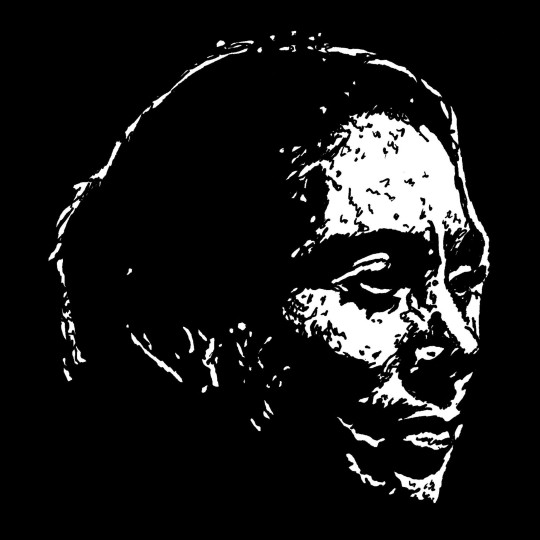
Here's some new Rosaura Revueltas art to celebrate!
#salt of the earth#herbert j. biberman#rosaura revueltas#hollywood blacklist#drama film#social realist film#social realism#social drama#political films#political drama film#tcm underground#feminist film#labor movement#labor movement film#film censorship#movie art#art#drawing#movie history#pop art#modern art#pop surrealism#cult movies#portrait#cult film#ben
4 notes
·
View notes
Photo

3 notes
·
View notes
Text
'The degree of civilization in a society can be judged by entering its prisons.' [Dostoevsky 'The House of the Dead']


'I despise […] no one, because it is in no one's power not to become a fool or a criminal, -because we would all become equal through equal circumstances, and because the circumstances are beyond us.'
[Blüchner to his parents, 1834]
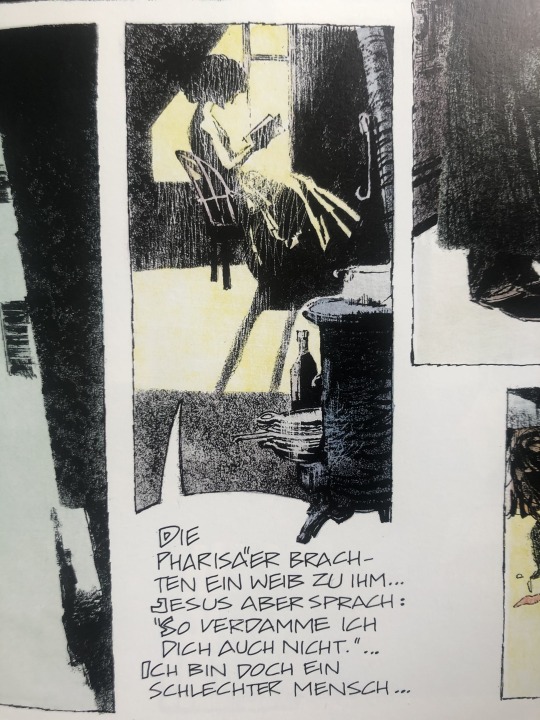
‘Woyzeck’ is considered the seminal and foremost social drama in German literature and altogether Büchner's most influential work.
The play, which will always stay in a fragmentary state, was written between 1835 and 1837; it was discovered and published posthumously in 1879 as ‘Wozzek’ and first performed in 1913, primarly edited by Karl Emil Franzos.
The play is directly based on the unemployed wig-maker Johan Christian Woyzeck, who was beheaded 1824 in Leipzig for the murderer of his mistress in 1821.
Young and idealist Büchner, who studied politics and philosophy, wanted to show how poverty leads to physical and emotional suffering, therefore leading to deteriorating the mental health, which can seen as the cause for criminal activities.
In this epoch the interpretation of the paradoxes of human-nature shifted from a philosophical consideration and got replaced by clinical interpretation, which lead to a self-inflicted assumption with reference to the environmental circumstances.
Scientific explanations of the so called ‘Free Will’ mean a voluntariness of 100 per cent for all actions, this means a knowledge and desire for the success of the act and this leads to higher sentencing, because voluntary element increases the sentence:
As people are free to decide everything, the voluntary nature of committing murder is therefore a qualifying feature.
This scientific optimism is frightening represented by the character of the Doctor in ‘Woyzeck’.
In a time, where social inequalities arise and progress is just feading the machinery, Woyzeck is barely eke out a living: His desperation for money leads him even to selling himself for scientific experiments. It is heart-breaking, how the most innocent soul of the play is treated and abused in his function by his superiors, driving him to murder. Blüchner also critisises the circumstances of the 'labouring poor', Woyzeck was in real life jobless, but he potrayed him as he experienced many workers at that time: Constantly in rush from one part-time-job to the other.
The social hierarchy is clearly shown through the range presented in the play. From the Doctor, to the Drum Major and the Captain, a disfavour resonates. The narrative of the ‘virtuous poor’ is continuously depicted and placed into the mouth of the Captain, but Woyzeck confesses that it would be fine to have morals, if he would have no struggles to ensure the livelihood.
With this text I am not aiming to summarise, it is just a fish-bit to not let the pictures of this special edition, unaccompanied.
It can just be repeated, that we can understand much of our presents problems when we reflect the basic conflicts of the Epoch of the Industrial Revolution and that back then, the paradox of human-life can not be solved by selecting one way or the other, it can’t be the solution to decide rather spiritual believe or science should deal with problems, it is more important to rise the awareness of dogmatic solutions in all ways, to draw attention to the effects economical decisions have on society, especially the financially weakest ones; to ensure healthy circumstances for living, in which no child has to suffer from poverty, which leads to deficits in many areas.
Without appreciation for the significant function every system-relevant profession implies, the value of work and working is expecting harmful effect.
Some fruits of thoughts are not new, quite the contrary, but we should be thankful for those humanistic ideas and resume work, as we still have much to do as long our ‘modernity’ could not maintain peace and find solution(s) against world-hunger and general exploitation.



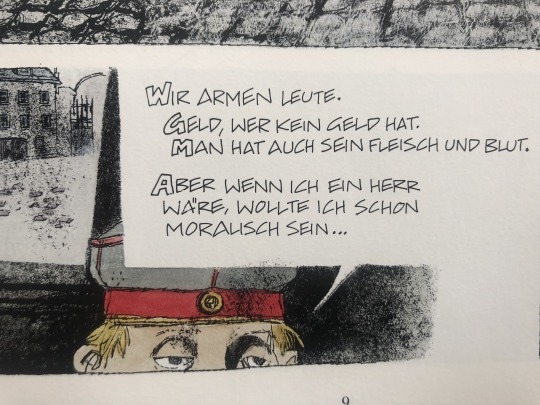
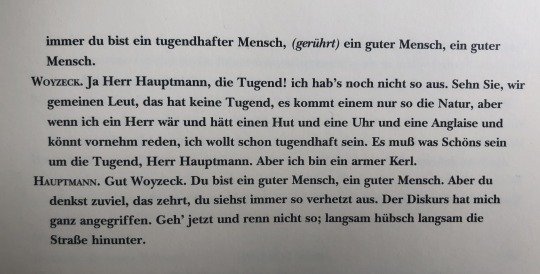
'A good social policy is the best criminal policy.' [Franz von Lizst]
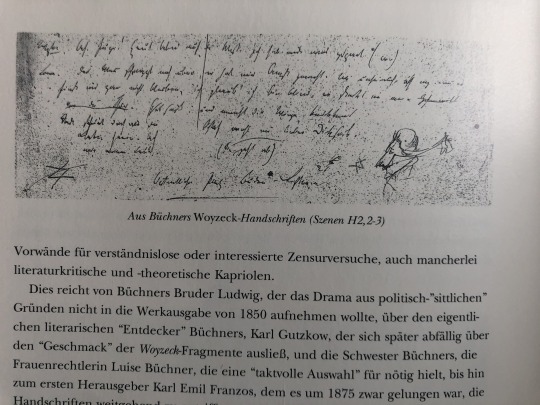
'I think if we went to heaven, we would have to help thunder.'

Gedichte inspiriert nach Woyzeck
I.
Kindchen, wo sind deine Eltern?
Geworfen auf die Welt, musst du bald auch dieser entschwinden
Geirrt bist du Tag und Nacht und konntest Niemanden finden
und als du im Himmel den Mond sahst, wolltest du dich zu ihm begeben
Doch nur faules Holz war der Mond, an dem du dich nicht kannst wärmen
Das Kindchen schwamm durch die dunkle Masse in Richtung des Sonnenballs
Nur verwelkte Sonnenblumen fandest du da
und als du dich zu den Sternen aufmachtest war ihr Licht brennender Mückenschlag
Zurück kam das Kind auf die Erde, die war ein umgestürzter Hafen
noch immer allein ging es herum und musste sich dann setzen
Auf die Welt geworfen das Kind
Ohne Wurzeln, geschenkt dem Vergessen
II.
Das Täglichbrot vermisst von denen,
die die Ähren säen
Der Himmel wurde eingerahmt
und die Robotenden sind in Käfigen
Es maschieren in den vordersten Reihen
die Ärmsten der Armen
niemand kennt die Namen von denen,
die als Erstes fallen
Dem Hauptmann wird beim Anblick
von Windmühlen schwermütig
Woyzeck hetzt wie eine offene Klinge
Ein guter Mensch, der rennt doch nicht
"Es muss was Schönes sein um die Tugend,
doch ich bin ein armer Kerl
Wäre gern moralisch mit Uhr und gutem
Schuhwerk"
An dem Körper wird gewerkelt
wie an einem lebenden Skelett
an allen Wesen dieser Schöpfung
experimentiert die ganze Welt
Unselig in allen Welten
Selbst im Schlafe sie
wie auf Arbeit schwitzen
und wären sie im Himmel
müssten sie
beim Donnern helfen!
III.
Die Wissenschaft verkündet der Mensch ist frei!
Er hat den Willen in sich, er ordnet
und lässt Sonnenlicht ins Aug hinein!
Die Wissenschaft verkündet der Mensch ist frei!
Er hat den Willen zu machen was ihm beliebt
ob Gutes oder Schlechtes ist allerlei!
Die Wissenschaft verkündet der Mensch ist frei!
Mit eigenem Willen denkt er in doppelter Raison
ihn leitet die Vernünftigkeit
Die Wissenschaft verkündet der Mensch ist frei!
Dem Willen sind alle Muskelfasern unterworfen
in dem Menschen verklärt sich die Individualität
zur Einheit
Die Wissenschaft verkündet der Mensch ist frei!
Der Wille reizt nicht zur Wut, wer sich ärgert
ist unwissenschaftlich, es gebührt kaltes Blut
Die Wissenschaft verkündet der Mensch ist frei!
Der eigene Wille kämpft sich aus der Armut und
wer noch in ihr darbt, ist selber daran schuld
Die Wissenschaft verkündet der Mensch ist frei!
Tatsachen sind gegeben und werden nicht hinterfragt
Der neue Gott: Verbeuget euch vor dem Arzt!


#Vormärz#between Romanticism and Realism#proletarian revolution#literature#world literature#book#19th century literature#Büchner#Woyzeck#social drama#labouring poor
1 note
·
View note
Text
Analysis of ‘Phool Aur Patthar’: An Effective, Old School and Classic Template of Masala and Messaging
The purposefulness, that we witness here, is sadly making an exit from modern day mainstream writing at a rate which is both alarming and disturbing. It is this mastery of connecting each dot at an opportune point that used to make these old school screenplays very cohesive even if the film might not work in totality. The blink and miss comic moment is a visual pun as well where a humorous relief…

View On WordPress
#1966#Amazon Prime#Dharmendra#Jeevan#Madan Puri#Meena Kumari#Musical#O.P Ralhan#Phool Aur Patthar#Retro Review#Social Drama
0 notes
Text
[Free Audiobooks] Poor Matza: Selected Stories by Avrom Reisen & The Truth About White Lies by Olivia A. Cole [Jewish Historical Fiction & YA Contemporary Social Drama]
The annual SYNC Summer of Listening program encouraging literacy among teens by giving away a themed weekly pair of audiobooks—1 modern or non-fiction, 1 classic or drama—returns for another year, courtesy of sponsor AudioFile Magazine and participating publishers.
This 6th week's theme is “Remaking Ourselves”, featuring fiction centred around the experience of moving to a new place with little support and trying to fit into a community that may not be as suitable as it seems, available from Thursday June 1st through Wednesday June 7th:
Poor Matza: Selected Stories of Avrom Reisen by the late Avrom Reisen, an early 20th century Belarusian-American Yiddish-language writer and poet, translated by Harvey Fink, read by David Skulski from Post Hypnotic Press. This is a collection of 38 historical period literary short stories about Jewish shtetl and city life in Eastern Europe and immigrant life in New York before WWII.
The Truth About White Lies by Olivia A. Cole, read by Mela Lee from Hachette Audio. This is a standalone YA contemporary fiction social drama novel, starring a white girl newly arrived in her recently deceased grandmother's gentrifying hometown and navigating the class and racial divides in wealthy private school circles as she tries to make new friends and fit in, uncovering family secrets that challenge her perception of own privilege as well as the lingering effects of white supremacy.
The freebies are available via Overdrive's Sora service (listenable via browser on their website, or via their mobile app for iOS & Android devices).
To claim them, you'll need to register on the SYNC website with a valid email address to use in a Sora account, using the setup code and directions in the instructions in SYNC's FAQ (no need to re-register if you've participated in previous years' giveaways), clicking “Borrow” to add them to your Sora library as a permanent loan. NB: if you need to free up space on your device later, follow the instructions in the FAQ to only “delete files” and DO NOT “Return” the title, which would remove your future access.
Offered worldwide through Wednesday June 7th until just before midnight Eastern Time, available via the Sora website and app. You can also browse AudioFile Magazine's planned season list to see what will be offered in the weeks ahead and if there's anything you'd especially like to get.
#free audiobook#avrom reisen#olivia a. cole#young adult#literary fiction#historical fiction#contemporary fiction#social drama#jewish#jewish literature#yiddish literature
0 notes
Text
Friends, between 4pm yesterday and right now (3am) of today might be the worst day of my life. I’m not even kidding. Ask me if you wanna know, slide into my DMs. I’m just laughing about it right now. But it’s so bad my husband is allowing me to info dump him about RE, so YOU KNOW ITS BAD LMFAO
0 notes
Photo
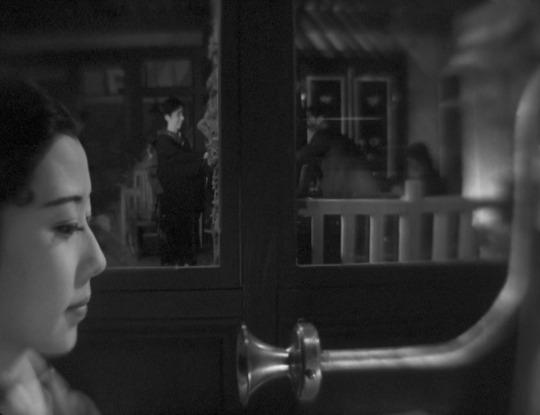

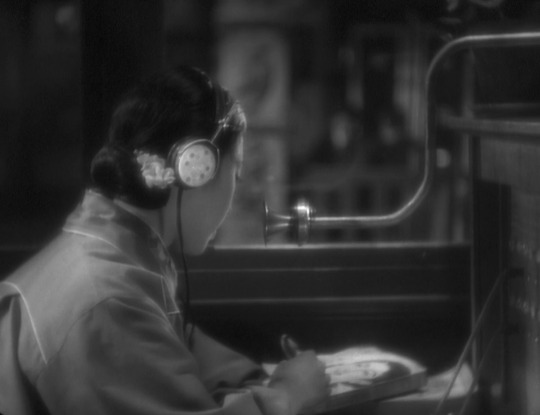
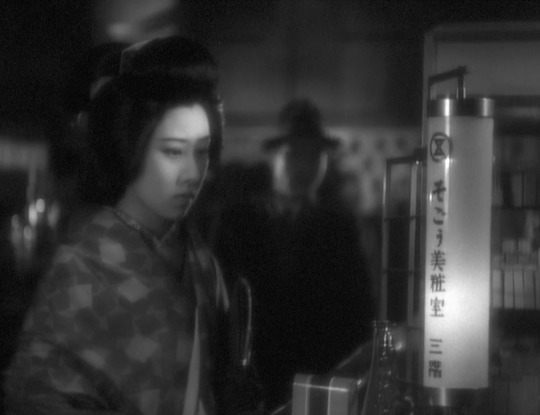
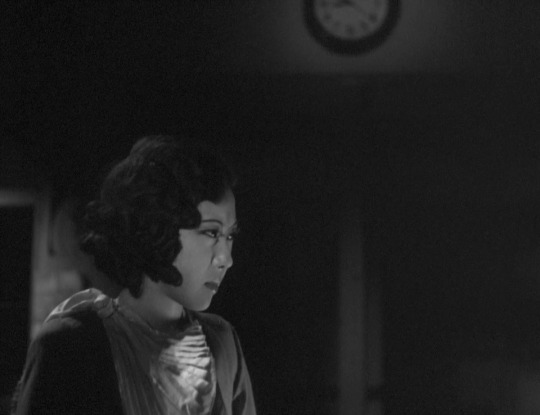



Naniwa erejî (a.k.a. Osaka Elegy) (Kenji Mizoguchi, 1936)
#films watched in 2023#Naniwa erejî#Naniwa ereji#Osaka Elegy#seis#Kenji Mizoguchi#Isuzu Yamada#Seiichi Takegawa#Chiyoko Okura#Shinpachirô Asaka#black and white#drama#social drama#1936#japan#loneliness#Mizoguchi#faces#fashion#beauty#telephone#smoke#hat
78 notes
·
View notes
Text
I feel like I've said something at least vaguely similar to this here before at some point years ago, because it's a minor running theme for me socially/professionally, but whatever, I'm saying it again:
If you give me a very strongly-worded "Congratulations on surviving your relationship with such-and-such-person-I-think-is-super-toxic/abusive!", you are not being as supportive as you tell yourself you're being by saying that. And unless I fully agree with how harshly you assess the such-and-such person (which I rarely do by nature, and by the way if I had any close kind of relationship with someone I've probably had the opportunity and the proclivity for forming a more nuanced opinion of them than you're able to), don't expect me to thank you for congratulating me or feel like you truly understand and support my situation rather than simply enjoy finding a new way to bash such-and-such person.
5 notes
·
View notes
Link
#2022#santiago mitre#ricardo darin#mariano llinás#argentina#biography#history#social drama#Crime#junta militar#1985#Cold War#politics#court#judgement court#Remember
0 notes
Link

here’s a new novel
0 notes
Text
Roleswap au where after Ballister receives his sword, he speaks up and says something’s wrong with it. In a bizarre and rushed conversation before the Director arrives, Ambrosius convinces Ballister to swap swords. Knighting ceremony continues. The sword Ambrosius is holding kills the queen.
Ambrosius is now the one framed for murder and on the run. Ballister is the underdog who’s suddenly been put on this pedastal to capture the Queen killer. Nimona’s doing the exact same thing in the movie but with Ambrosius now. And the Director is having a breakdown over her plan going to complete shit in minutes
#honestly this is motivated by me wanting to watch the director squirm in her seat as everyone cheers Ballister on#that and I desperately want some Ambrosius and nimona interactions#nimona#oh and the DRAMA#the kingdom’s social media would be on fire#‘the most anticipated knight of a generation turned murderer’#the BETRAYAL#goldenheart#Ballister boldheart#ambrosius goldenloin
1K notes
·
View notes
Text
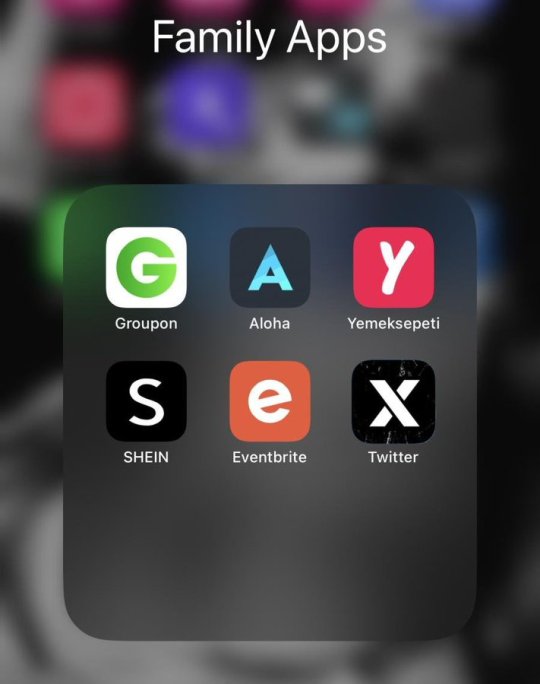
This is probably the dumbest twitter thing Elon has done
#Why would you get rid of the bird???#twitter#twitter news#twitter drama#twitter update#twitterpocalypse#funny twitter#elon musk#elongated muskrat#elon twitter#elon mask#twitter implosion#twitter meltdown#social media#twitter memes#minyicho#memes#lmao#funny#lol#funny memes#haha#fresh memes
1K notes
·
View notes